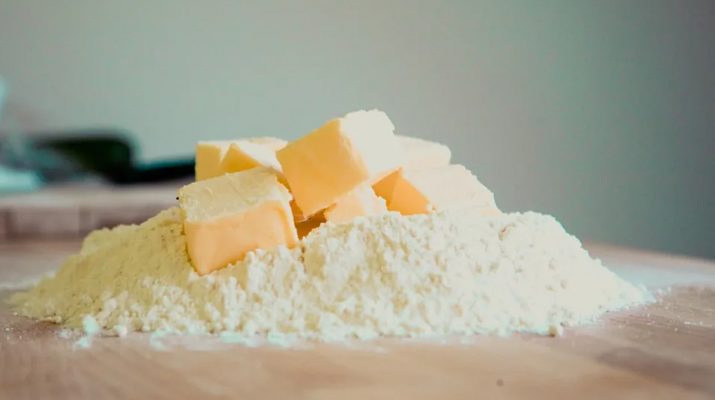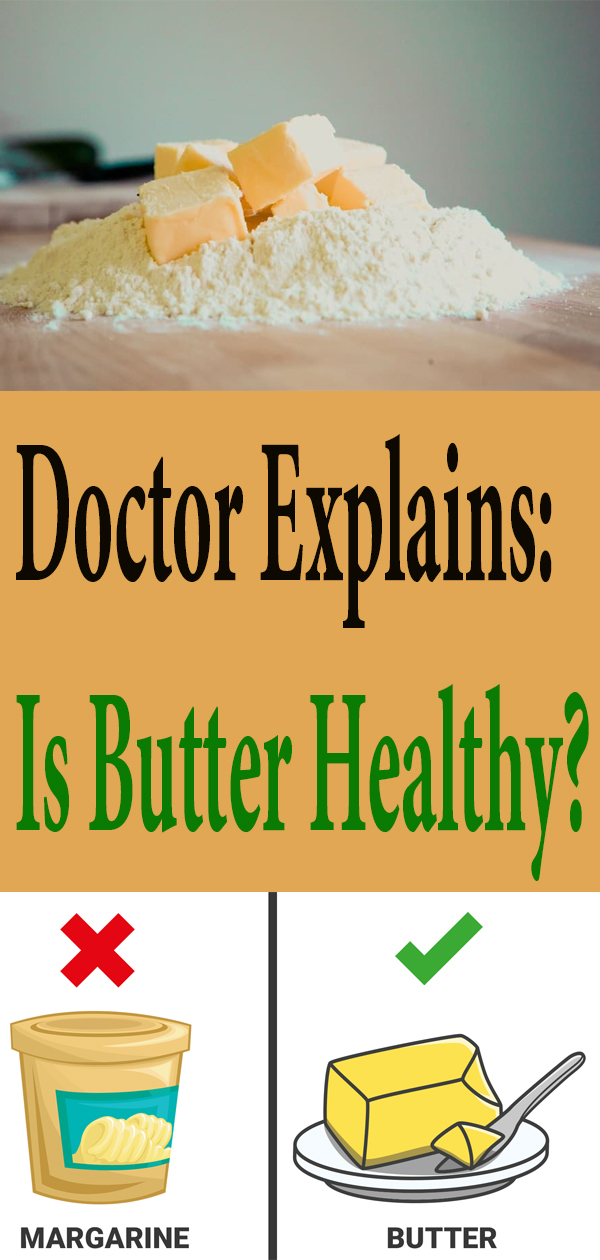Real butter can fit into many lifestyles, including mostly plant-based or vegetarian diets. A common question is whether it contains any nutritional value.
Do butter health benefits exist? Yes, they do. Some will likely surprise you too.
Saturated Fats: What You Need To Know
Saturated fat is the main reason we might avoid butter. Conflicting scientific research says it might not be the public enemy. While not a study per se, Europe consumes more butter than the US annually. Their product tends to contain more saturated fat than our standard sweet cream variety too.
A big issue arises when we look at science. The problem is it’s conflicting. According to Harvard, it’s also non-existent.
We also know that high cholesterol and heart disease has continued to rise despite many households switching to margarine. Our waistlines haven’t magically shrunk either. There’s also no evidence supporting a direct correlation between saturated fat and heart disease or high cholesterol.
A stronger link between trans-fat and high GI index foods exists than saturated fat.
According to Dr. Will Cole, Weston Price Foundation, Dr. Axe, and other doctors and researchers, butter health benefits can outweigh these so-called risks. This is especially true with grass-fed butter.
A 1-Tablespoon Serving Of Generic Butter Contains:
- 101 calories
- 7.2g saturated fat (11.5g total)
- 3mg potassium
- 12% vitamin A
- 1% vitamin B12
- 2% vitamin E
- 1% vitamin K
Other Butter Health Benefits
- Trace minerals
- Essential fatty acids CLA and butyric acid
- Omega-3 fatty acids
- Helps your body absorb fat-soluble vitamins
- No trans fat
- Less processed than alternatives
- Saturated fat is satiating
You’ll be hard-pressed to find a doctor or nutritionist giving you a green light to consume copious amounts of butter (or margarine for that matter). Some diets certainly advocate high amounts of saturated fat, but if you’re consuming a well-balanced diet, set limits on your intake and stick to them.
Butter Can Help You Shed Pounds
If you’re trying to lose weight, one consideration is butter can help, thanks to CLA. CLA is a component responsible for the mass reduction in the study, which showcased overweight and obese participants.
Butter Fits Most Low Carb Lifestyles
Special lifestyles, such as keto or Atkins, remove grains and sugars. Their bodies break down high amounts of fat as fuel, which is why they consume more than the average person does.
However, they also keep a macro balance. Their higher fat macro isn’t an excuse to eat more fats either, but an additional tablespoon or more can assist them in reaching their goals. Just remember, it shouldn’t be a daily occurrence.
Bone And Heart Health
Vitamin K2 is a nutrient your body needs, and it might not receive enough of through a traditional diet without butter. A good intake of vitamin K2 lowers might vascular damage. It also assists the body in removing excess calcium and could lower associated health problems, such as found from supplements.
(7)
Provides A Balance Of Omega-3 And Omega-6 Fatty Acids
We hear a lot about omega-3 fatty acids but not so much about the other kinds. Did you know there’s an optimal balance? Did you know consuming too much of omega-6, which you’ll find in prepackaged and convenience foods, can cause or worsen inflammation?
It also has a stronger correlation to cardiovascular disease than butter does.
Butyric Acid Might Improve Insulin Sensitivity
Current animal research suggests that the short fatty acid chain present in butter could actually improve insulin resistance and increase metabolism.
Switching Back To Butter
Remember, moderation is still a key factor to overall health. Saturated fat might not be evil, but it’s still rich in calories.
Tracking Your Consumption Is Important At First
How much is too much? That number can vary greatly. Your personal goals can alter your daily amount as your consumption can up your overall calorie intake or create a deficit if you cut back.
The best practice is to keep a food diary for a week or two.
Write down actual servings. Add in what foods you ate with butter, and be sure to highlight any good or bad effects you experienced.
Here’s a quick example:
A healthy pat on steamed vegetables left you satisfied one week one. On week four, you decided to remove the butter. You replaced it with margarine.
The meal now leaves you ravenous. You wind up eating more food than you believe you should. You glance at your consumed calories. You’ve negated the benefits of removing the butter.
On the other hand, if you experience inflammation after eating butter it could be a sign of an intolerance or allergy.
Don’t be too quick to judge the butter in your diet. Some doctors believe that butter doesn’t mix with junk food, grains, or sugar; this combination leads to inflammation in the body, which then leads to autoimmune disease and other serious health conditions.
Are All Butters Equal?
Yes and no. For optimal health benefits, you should consider a brand made from organic cream or cream from grass-fed and finished cows. This includes if you’re making your own.
Organic Vs. Grass-Fed
You can easily find organic varieties, but don’t confuse organic with grass-fed farming methods. They are different.
Grass-fed and finished cows spend their lives free-ranging and with supplemental diets. They generally don’t receive hormones or antibiotics either. Milk from free-range cows can still be certified organic.
Technically, certified organic cream can come from cows fed organic animal feed. Their living conditions might not be much better than a standard dairy cow. Organic doesn’t equal free-range or a natural diet.
Sweet Cream
As the name implies, the main ingredient is sweet cream. Sometimes, they contain salt, herbs, or additional sweeteners. This kind is most common in the US.
Cultured
Cultured butter is more common in Europe, but it has a nice tang that pairs well with all sorts of cuisine. So what is it exactly?
Unlike traditional US butter, companies (or you) would add live cultures to the cream and ferment it. This increases the health benefit by adding probiotics.
European
European standards for buttermilk fat is higher than in many countries. In order for a product to use the name, they must contain at least 82%. Traditional sweet cream butter uses far less, according to Bon Appetite, so you will end up with richer dishes and baked goods.
Whipped
Whipped varities contain less fat and calories per serving because of their volume. Swapping to this type of product can provide some health benefits still, but it can be an easier way to cut back without actually cutting out butter.
Ghee
Many people consider ghee to be anything but butter since it contains no dairy.
Another common name is clarified butter, which is closer to a process you can mimic at home with a small saucepan and a lot of patience. It is a little different because the process to make ghee takes longer, and the end product has a different flavor.
One benefit of ghee is it contains no lactose or casein. Another is its high smoke point, making it ideal for sautéing. You’ll also find the same vitamin composition as butter but almost twice as much CLA and butyric acid fatty acid chains. Both have strong overall health benefits.
Are there downsides? Yes, it also contains 62% saturated fat and oxidized cholesterol.
Is It Healthier Than Commercial Alternatives?
A common misconception is that margarine is a healthy alternative to butter. Margarine’s inventor wasn’t concerned about health; he was responding to the large butter shortage and answering a growing population’s demand.
Originally, margarine used beef tallow. Only in more recent years did the industry swap to vegetable and seed-based oils, and many brands still contain dairy.
We don’t want to knock all margarine because some brands are entirely plant-based, GMO-free, and trans fat-free. One benefit these can provide that butter doesn’t have is a healthy dose of plant-based fats. This means they could have a spot in your diet too.
Who Should Avoid Butter?
Vegans, for obvious reasons, will naturally avoid butter. However, if you’re sensitive to milk proteins or lactose intolerant, you might have a reaction. Each person responds differently to butter, including ghee.
Are Their Healthy Alternatives?
One option people turn to is A2 butter. If you have an allergic reaction to the A1 protein, the A2 variety might be a better choice. A caveat is it can be expensive. A second option is to use ghee, which no longer has the protein present.
One other option is to swap to a vegan alternative below. They won’t contain the same health benefits, but they pose little to no danger either.
Healthy Vegan Alternatives
- Coconut oil
- Coconut butter
- Mashed avocado
- Olive oil
- Applesauce
- Nut butter
- Mashed pumpkin
- Nutritional yeast
- Vegetable stock or bullion
- Dairy-free yogurt
- Cocoa butter
- Shea butter
Final Thoughts On Butter Health Benefits
If you’re not vegan and can tolerate the creamy goodness, don’t let faulty science stop you from using it. Unlike most commercial alternatives, health benefits have science backing their claims.
Use a pat to strengthen your heart, reduce your omega-6 consumption, or to lose weight. You might be able to use it to treat insulin resistance and boost your metabolism.
Don’t forget that it contains vital nutrients and vitamins your body needs for optimal health like vitamin K2, E, and vitamin A. The saturated fat in butter improves their bioavailability too.
The next time someone offers you a pat, we hope you’ll think twice about why you’re avoiding it and reconsider. Cheers to better health benefits.


